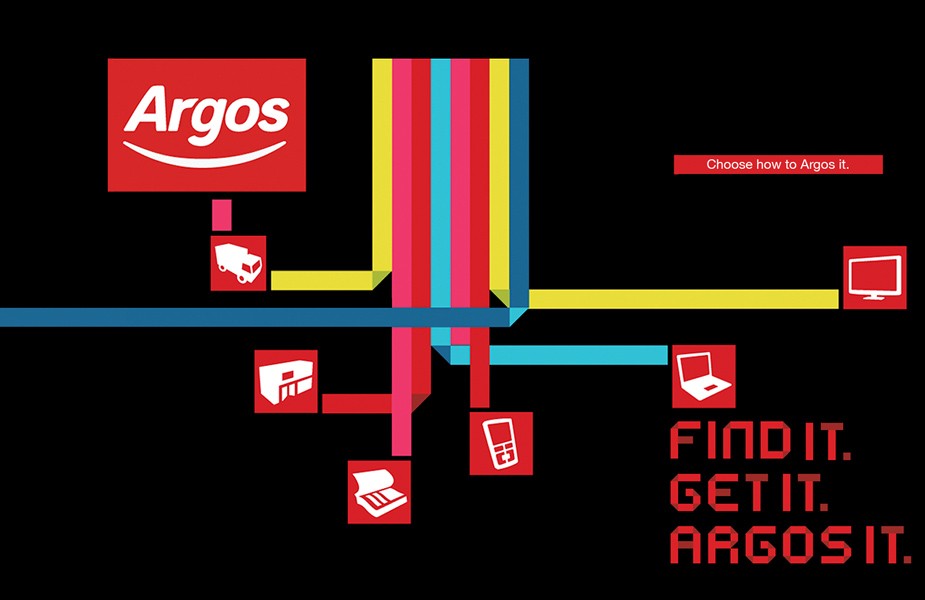Nachrichten und Ansichten
Omni-channel retail brand strategy consultants.

Argos
Omni-channel retailing is a powerful strategy for enhancing customer experience, driving sales, fostering loyalty, and boosting overall business performance.
By 2018, it was projected that 30% of major retailers would adopt omni-channel digital B2B and B2C commerce platforms, which improve customer experience, streamline processes, and enhance inventory management.
Currently, the B2C and B2B retail landscapes largely exist in separate, disconnected domains. Digital transformation is essential for creating a seamless customer journey that can begin and end on any device, across any channel, at any point.
Research indicates that multi-channel shoppers typically spend 15% to 30% more than single-channel consumers. More impressively, omni-channel shoppers are likely to spend 15% to 30% more than their multi-channel counterparts and demonstrate greater brand loyalty.
To cater to omni-channel consumers effectively, retailers must provide a seamless experience across various channels. Studies show that when consumers enjoy a frictionless shopping experience, they tend to shop more frequently and make purchases across a wider array of product categories.
At CampbellRigg, we deliver timely and relevant brand strategies tailored to meet the omni-channel retailing needs of each client. For an example of our work in this area, please check the projects section for Currys PC World Black.
A well-defined omni-channel strategy can also help draw shoppers back into physical stores. Despite predictions about the decline of brick-and-mortar locations, research indicates that consumers still value the social interaction, the thrill of discovering new merchandise, and the immediate gratification that comes from the in-store experience.
Additionally, studies show that 60% to 70% of offline sales are influenced by online research and digital offers. This suggests that online channels can be effectively designed to drive consumers into stores. A smart omni-channel retail strategy can leverage one channel to promote revenue goals in another.
Our focus is on helping customers navigate the interconnected retail landscape. This involves creating a unified supply chain, harmonising product ranges, and implementing a single IT system to support retail brands' stores, back offices, and supply chains.
Take Argos, the established UK catalogue retailer with over 700 stores and “click and collect” availability for more than 17,000 products. Argos has fully embraced e-commerce, with 51% of its sales linked to multiple channels. Over 30% of sales are generated through the store's “check and reserve” service, while 42% are solely online. They have also worked to enhance the availability of digital inventory and online reviews in-store.
Argos exemplifies extensive support for shoppers who use multiple touch points before finalising their purchases. This includes online tools and information for those wishing to complete transactions in-store, as well as in-store technology, signage, and knowledgeable staff to assist customers shopping online.
To ensure a competitive customer experience and identify areas for improvement across sales and marketing channels, retailers should consider these benchmarks:
Promote their website through in-store signage.
Include product ratings and reviews on their website.
Offer a store stock checker on product pages to help customers locate items in nearby stores.
Provide gift cards that can be redeemed online.
Offer free Wi-Fi in stores.
Issue e-receipts for in-store purchases.
Provide same-day delivery options.
Respond to email inquiries within 24 hours.
Apple has successfully integrated its mobile app and physical stores to enhance sales. For example, customers can book support appointments at the Genius Bar via the mobile app. Walk-in users receive messages through the store app confirming their requests and alerting them when a technician is available. When a customer places an online order for in-store pickup, they receive an alert when they are near the store, displaying relevant order information for easy presentation to sales staff.
Include product ratings and reviews on their website.
Offer a store stock checker on product pages to help customers locate items in nearby stores.
Provide gift cards that can be redeemed online.
Offer free Wi-Fi in stores.
Issue e-receipts for in-store purchases.
Provide same-day delivery options.
Respond to email inquiries within 24 hours.
Apple has successfully integrated its mobile app and physical stores to enhance sales. For example, customers can book support appointments at the Genius Bar via the mobile app. Walk-in users receive messages through the store app confirming their requests and alerting them when a technician is available. When a customer places an online order for in-store pickup, they receive an alert when they are near the store, displaying relevant order information for easy presentation to sales staff.
While many sophisticated retailers empower customers to complete transactions across any channel, recent studies highlight a gap between consumer expectations and the omni-channel experiences currently offered by retailers and brands.
Here are five key challenges facing our clients:
Closing the gap between customer expectations and omni-channel execution.
Engaging customers consistently and personally across all channels, including call centres and in-store experiences.
Focusing on customer needs rather than merely on products.
Mobilising stores to better serve omni-channel customers with sales and advice in-store.
Integrating omni-channel B2B and B2C experiences into the core of the retail organisation.
Overview
Omni-channel retailing allows customers to initiate a purchase in their preferred channel and complete it in another. Although 65% of shoppers still prefer in-person shopping, retailers can leverage other channels to enhance the in-store experience and provide options when physical stores are closed. As technology becomes more prevalent, the percentage of people who prefer online shopping is likely to grow.
Engaging customers consistently and personally across all channels, including call centres and in-store experiences.
Focusing on customer needs rather than merely on products.
Mobilising stores to better serve omni-channel customers with sales and advice in-store.
Integrating omni-channel B2B and B2C experiences into the core of the retail organisation.
Overview
Omni-channel retailing allows customers to initiate a purchase in their preferred channel and complete it in another. Although 65% of shoppers still prefer in-person shopping, retailers can leverage other channels to enhance the in-store experience and provide options when physical stores are closed. As technology becomes more prevalent, the percentage of people who prefer online shopping is likely to grow.
Our internal process of renewal enables us to continually benchmark and report on the best retail trends globally.
If you would like to discuss your retail brands or explore design renewal programs, digital strategies, or social media needs, please feel free to reach out.









